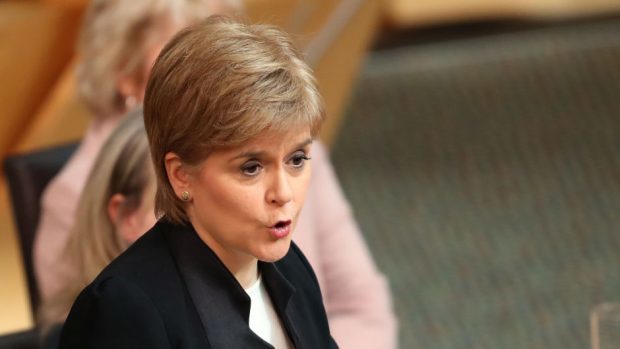The Scottish Government will demand to be involved at “all stages” of post-Brexit trade talks with the US to ensure the £922 million whisky market is protected.
First Minister Nicola Sturgeon said it was “vital” that the Scotch sector is safe from “deception and unfair competition” under the terms of a future trade deal.
The US market accounts for more than 20% of all Scotch exports, but fears have been raised that American trade groups could demand that a future deal relaxes regulations and enables them to promote younger, rival brands as whisky.
Moray MSP Richard Lochhead raised the issue at first minister’s questions yesterday, asking if the Scottish Government would have observers at talks between the UK and US governments.
Ms Sturgeon said: “The Scottish Government and, I believe, the Scotch Whisky Association, are opposed to any weakening of the whisky definition post-Brexit, as a result of trade negotiations with third countries or via any other means.
“That protection is vital to protect consumers and the industry from deception and unfair competition from domestically produced spirit drinks that have no age provenance.”
She added: “I hope that everybody would agree that, where the Scottish Government has a significant interest, it is absolutely vital that it is actively involved at all stages of the process of negotiating future trade deals, including as members of or observers on the negotiating team.
“It is only in that way that the UK Government’s stated aim of having a trade policy that reflects the interests of all parts of the UK will become a reality.”
Conservative MSP Dean Lockhart warned that whisky exporters to the US would now face “massive currency uncertainty as a result of the first minister once again calling into question Scotland’s future currency”, through the publication of the party’s long-awaited growth commission report on independence.
The SNP leader said “that is not the issue that people in the whisky industry are raising with me”, and that they were “worried about potential trade barriers” following Brexit.
